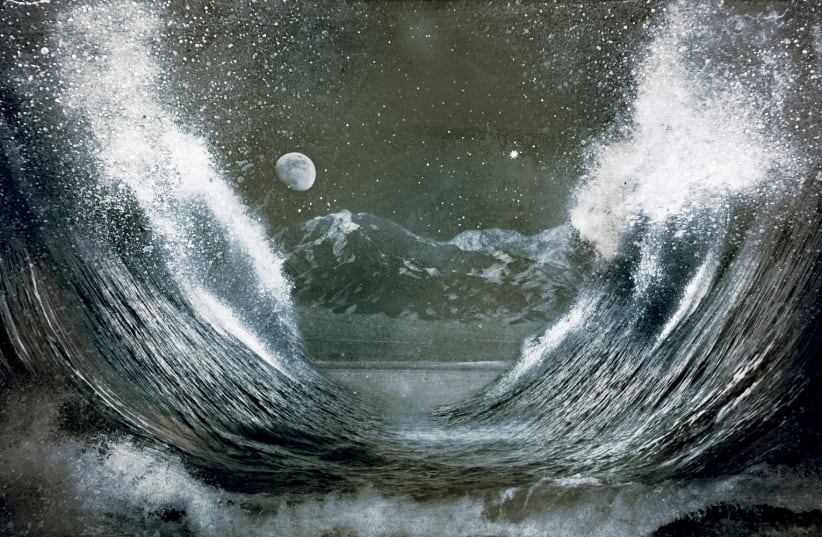The inconceivable miracle of the sea splitting was unexpected. As opposed to most of the plagues that God brought down onto the enslaving Egyptian nation, no prophetic announcement preceded the splitting of the sea, other than in the moments right before entering the sea. When the Children of Israel reached the seashore and discovered that the best of the Egyptian army was in quick pursuit, they felt despair. Realistically, the situation was indeed desperate. When the sea split and the Children of Israel ran in, the Egyptian army followed. It is hard to imagine the hopelessness that this newly released nation of slaves must have felt.
To their great shock, when the Israelites climbed up onto the opposite shore of the Red Sea, they saw that the Egyptian army was no longer pursuing them. The water that had split to allow the liberated slaves to cross the sea, fell down and drowned the callous masters. The Israelites stood on the shore and saw the remnants of the Egyptian army floating and washing up onto the shore. They had again won their freedom – this time for real. And what was their reaction at such an incredible moment?
“Then Moses and the children of Israel sang this song to the Lord, and they spoke, saying, I will sing to the Lord, for very exalted is He; a horse and its rider He cast into the sea (Exodus 15: 1).
The song that erupted from their hearts was prophetic. The Divine revelation was so intense and palpable that our sages expressed their wonder by saying, “A maidservant saw on the sea what Isaiah and Ezekiel never saw” (Mechilta D’Rabbi Yishmael, Masechta D’Shira, 3). Isaiah and Ezekiel, two of the greatest prophets, who describe lofty Divine scenes, never reached the transcendency of the simplest Jew on the shores of the Red Sea.
It might be said that the miracle in the Song of the Sea is even greater than that of the splitting of the Red Sea. When the sea split, it was a miracle that only God could have performed. It was a one-time-only miracle in all of history, a dramatic change in the laws of nature. However, when the Children of Israel burst out in song, they experienced an internal metamorphosis. An external liberation from slavery would not have sufficed to be able to sing. That required an internal, fundamental liberation from the consciousness of a subjugated slave to that of someone proud and free.
The Zohar describes the period of slavery in Egypt as “the exile of speech.” The enslaved nation was unable to express its feelings in words; it cried out to God wordlessly. Even Moses had a serious speech impediment. When the Children of Israel burst out in song, it was a beautiful expression of the liberation they experienced. We mark the first day of Passover as the day of the Exodus from Egypt. Indeed, on this day, the nation walked out of Egypt. But truthfully, the internal liberation occurred seven days later, when the Israelites rose to heights of freedom that allowed for emotional expression through song.
The incredible parting of the Red Sea awakened in the souls of these liberated slaves the awareness that there is a God Who can extricate a person from any hardship, and that they have a God on Whom they can lean and Whom they can trust. If hardship is to come – and everyone experiences hardship – a Jew knows that God is with them in every situation. This is the perpetual liberation from indifferent regularity, from constant and meaningless determinism. This is a move to a profound experience of freedom, to the experience of a person who knows their fate is determined by He Who controls all and Who benefits all – the Creator of the Universe.
The writer is rabbi of the Western Wall and Holy Sites.
